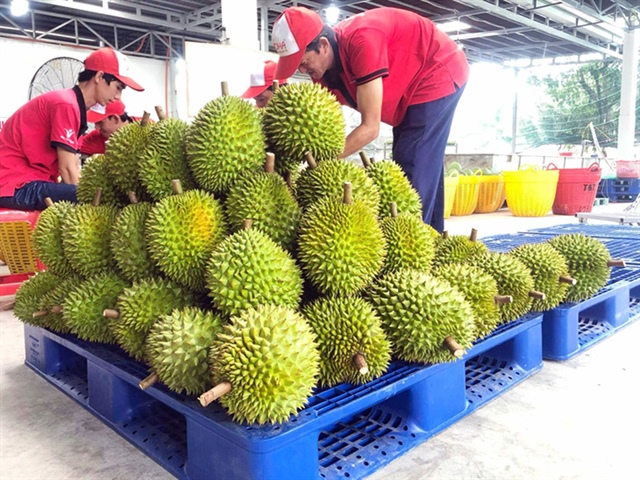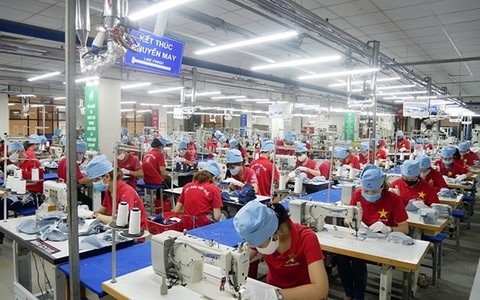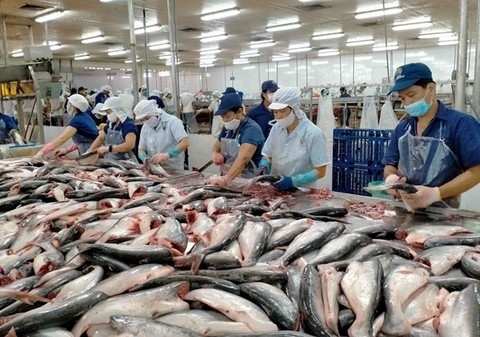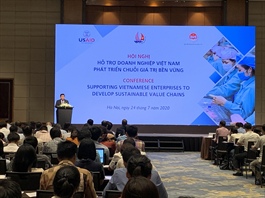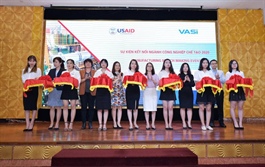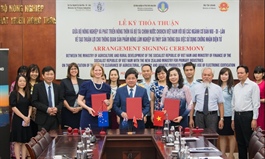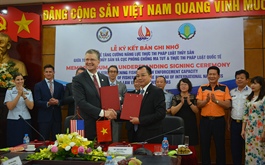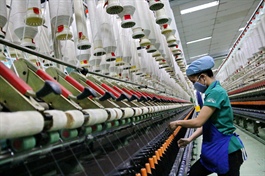Farm produce needs to meet tough EU standards under EVFTA
Farm produce needs to meet tough EU standards under EVFTA
The agriculture sector needs to address challenges related to branding, geographical indications, traceability, and intellectual property to take full advantage of the free trade agreement Viet Nam has signed with the EU, speakers said yesterday at a meeting. 
Le Duy Minh, chairman of Viet Nam Farms and Agricultural Enterprises Association (VFAEA), said the EU-Viet Nam Free Trade Agreement (EVFTA) has created tremendous opportunities for Vietnamese exports, including agro-forestry-fishery products.
“The EU market is highly demanding in terms of compliance with standards to safeguard the protection of consumers,” he said. “European consumers value high quality products with special characteristics such as organic, fair trade, and geographical indications.”
The EU is the third largest trade partner of Viet Nam and one of the country’s two biggest export markets, he added.
Exports of agro-forestry-fishery products to the EU stands at nearly US$5 billion per year, according to Minh.
Dr Dinh Viet Tu, of the Ministry of Agricutlure and Rural Development’s Agro-product Processing and Market Development Department, said it was important to protect intellectual property at home and abroad for key and specific agricultural products, and promote branding development, geographical indications, and traceability.
Le Thanh Tung, deputy head of the ministry’s Plant Cultivation Department, noted that it was also important for the agricultural sector to raise its chain value to take full advantage of the trade deal.
Exporters must improve standards and develop new value-added products that can compete internationally, he said.
“They must aim at the highest level of standards to ensure that products can compete on the world stage,” Tung said.
Vo Tan Thanh, vice chairman of the Viet Nam Chamber of Commerce and Industry (VCCI), said that to take full advantage of the agreement, farmers should shift from traditional to sustainable cultivation.
Enterprises should intensify deep processing as well as follow regulations on technical barriers and food safety and hygiene committed in free trade agreements in general and the EVFTA in particular.
The Government should also intensify food safety management, while calling for more investors in agriculture, especially after harvesting, he said.
Lawyer Pham Vu Khanh Toan pointed out that registering for and protecting geographical indication (GI) of Vietnamese farm produce would add value to unique products and promote their export.
The origin of food is important for consumers who value tradition and cultural identity. Some consumers are willing to pay more to find such characteristics in their products, according to Toan.
"Geographical indication could add value, increase access to new or existing markets, help gain a competitive advantage, and reap more profits," he said.
For the past decade, Vietnamese exports of agricultural, forestry and aquatic products grew more than 9 per cent on average. There are 10 agricultural products with export turnover of $1 billion or more, including fruit, cashews, coffee, rice, and shrimp.
Experts said Viet Nam’s agricultural sector will be one of the biggest winners from the EVFTA, as a reduction in tariffs will increase demand and boost exports to Europe’s large, high-spending consumer market.
According to EU statistics, trade in agricultural products represents 11.75 per cent of the total two-way trade between Viet Nam and the EU.
The EVFTA abolishes 99 per cent of import tariffs over the next seven to 10 years.


